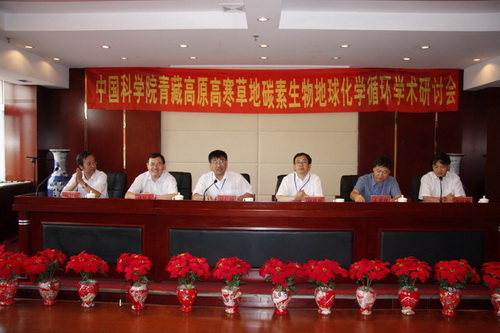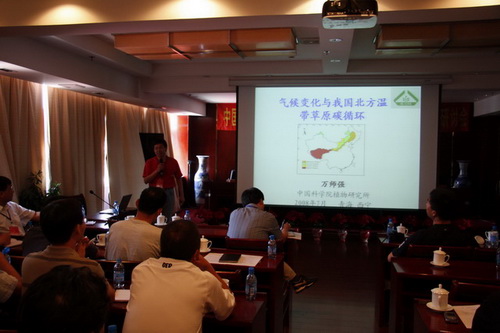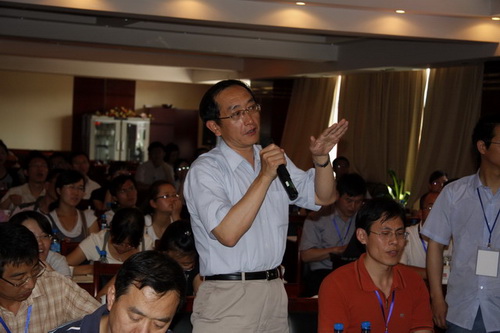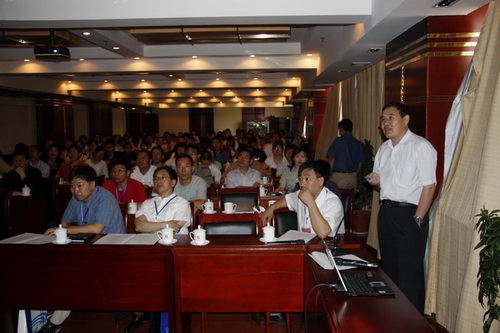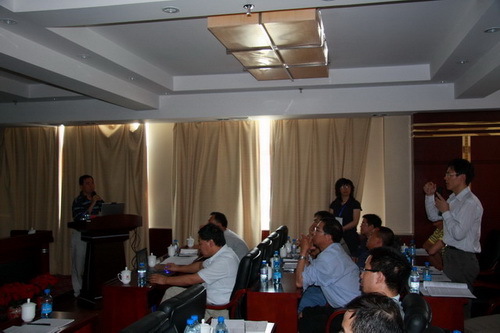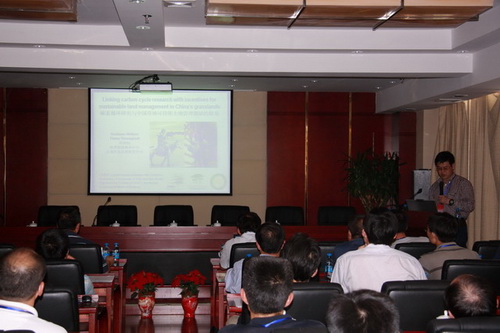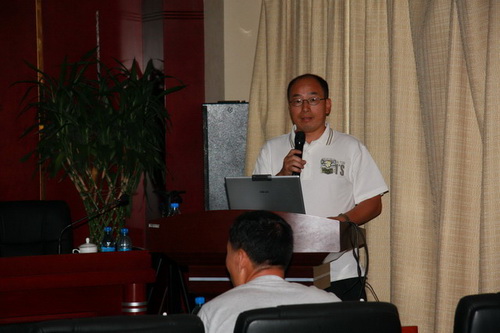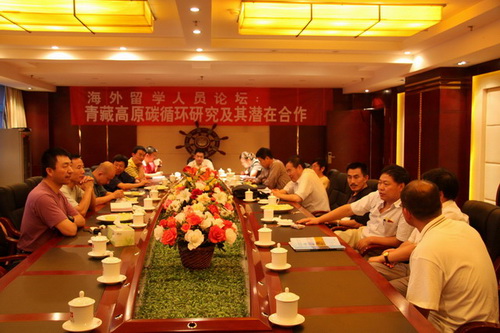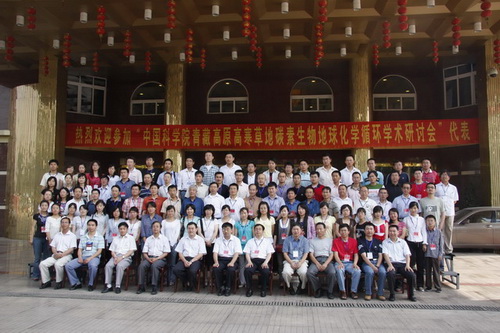The conference focus on the biogeochemical carbon cycle over alpine grassland on the Qinghai-Tibetan Plateau, organized by the Chinese Academy of Sciences (CAS), hosted by Northwest Institute of Plateau Biology (NWIPB), CAS, Haibei Research Station of Alpine Meadow Ecosystem, CAS and Key Laboratory of Adaptation and Evolution of Plateau Biota, Northwest Institute of Plateau Biology, Chinese Academy of Sciences, was successfully held on 26-30 July, 2008 in Xining, Oinghai China. More than 120 representatives took part in the conference, respectively coming from twenty-three research institutes, universities and colleges, and enterprises, and from 4 countries were invited to attend this symposium, including United States of America , Germany, Japan and Australia. More than 49 papers were submitted and discussed during this academic meeting.
Researcher Huaigang Zhang, deputy director of NWIPB, presided over the opening ceremony. Researcher Xinquan Zhao, Chairman of organizing committee of the meeting, director of NWIPB, made the opening speech. Mr. Haoming Zhao, director general of Qinghai Municipal Environmental Protection Bureau and Mr. Weixing Zhou, deputy director general of Qinghai Science and Technology Department, delivered the welcome addresses. Researcher Renguo Feng, deputy director general of Bureau of Science and Technology for Resources and Environmental, CAS, and Researcher Guirui Yu, deputy director of Institute of Geographic Science and Natural Resources Research (IGSNRR),CAS, addressed the opening ceremony.
The theme of this meeting is the biogeochemical carbon cycle over alpine grassland on the Qinghai-Tibetan plateau. A total of six famous carbon cycle were invited to give academic reports during the conference with a wide range of current hot topics, including Professor Zhao Xinquan, Professor Yu Guirui, Professor Xu Ming, Professor Wan Shiqiang, Professor Jin Huijun, and Professor Xie Zubing. Their reports reflect the top academic level at home and abroad and embody fully leading parts carbon cycle of alpine grassland on the Qinghai-Tibetan plateau are playing in national economy and social development of China.
Parallel sessions were organized on the following 8 topics: (1) Ecophysiological responses of plants to global changes; (2) Interactions between alpine grassland ecosystem and global changes; (3) biogeochemical carbon cycles; (4) Remote sensing analyses of net primary production of the Qinghai-Tibetan plateau; (5) land use-cover change and carbon cycle; (6) the impact of human alteration on the carbon cycle of alpine grassland ecosystem; (7) climate predictions / predictability; (8) Management strategies for global climate change.
After the symposium, the delegations visited Haibei Research Station of Alpine Meadow Ecosystem, the Chinese Academy of Sciences.
The conferences not only provided an excellent platform for experts and scholars to communicate and exchange their ideas and achievements, but also enlighten people to think about the great impacts of human activities on the carbon cycle of the Qinghai-Tibetan Plateau and to find out the solutions.
